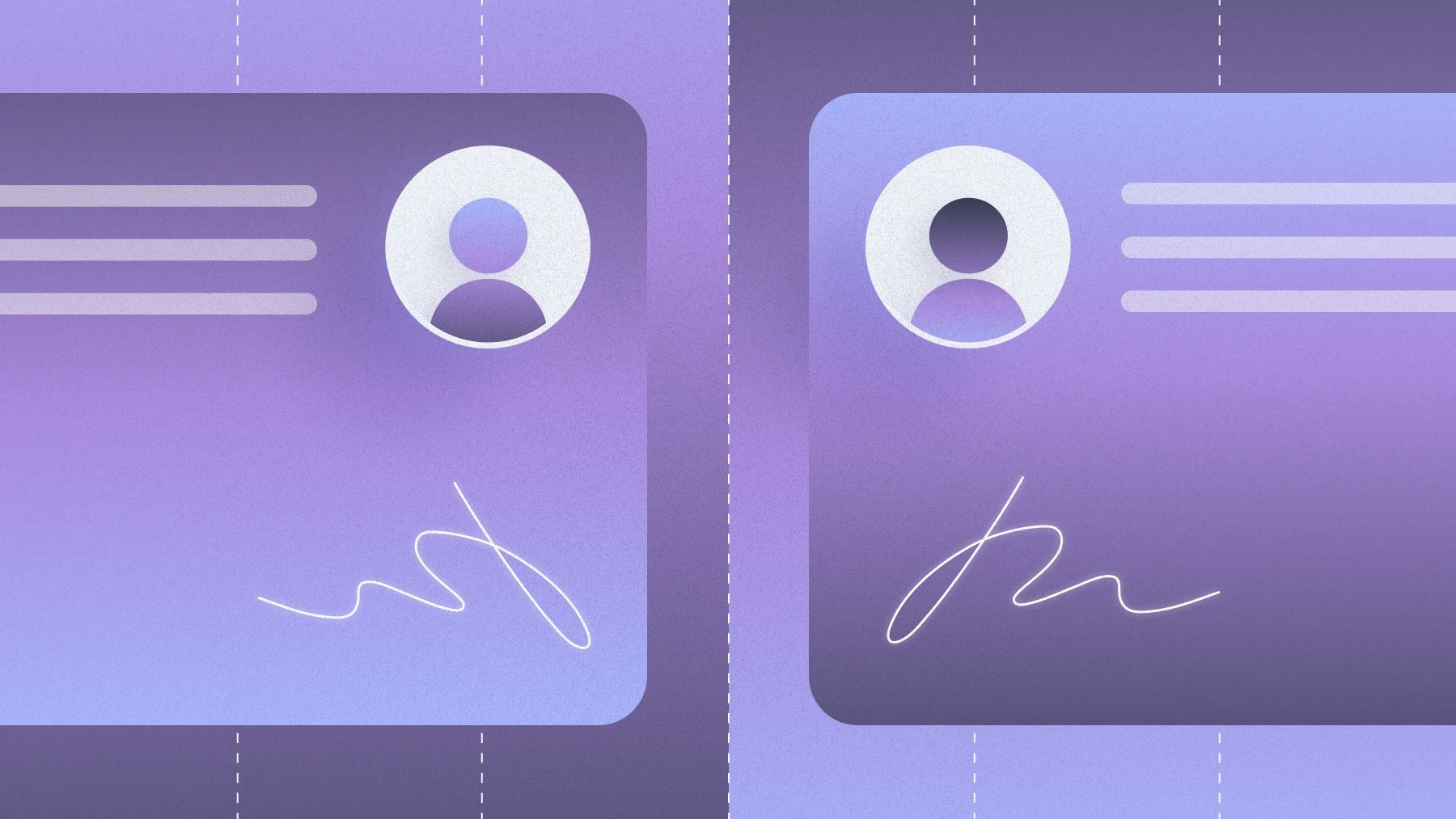What licenses and permits do I need to operate a U.S. business?

Every business that plans to operate in the U.S. will need some type of business permit or license. These requirements vary across federal, state, and city governments, and are impacted by everything from a business’ headquarters to the industry it operates in.
In this article, we’ll explore how to find out what licenses and permits you’ll need to launch and maintain your business, provide a list of common licenses to check for, and help simplify the process of adhering to these requirements.
Business licenses versus permits: What's the difference?
Business licenses and business permits are both boxes that need to be checked to make sure that your business is operating legally. Without licenses or permits, your business is at risk of being shut down.
Licenses and permits are often confused but there are some important differences between the two. A business license or professional license is granted by a governing body, such as a state organization or a local municipality. You'll need to meet certain criteria to get one, such as conducting business in a specific area. These licenses grant your business the right to carry out specific activities. For example, a business license allows you to run a business; a liquor license lets you sell alcohol.
A business permit, on the other hand, is proof that your business is following certain laws. For example, a zoning permit can indicate that the use and structure of your physical business is following the local rules of your area.
Who issues licenses and permits?
There are multiple levels of government you will need to check with to ensure that you’re complying with license and permit requirements. This can be confusing.
For example, federal business permits and licenses apply to everyone in the U.S., while state and local governments often have different requirements on business licenses and permits.
Ensure you’re complying with the right permits and licenses by checking directly with each level of government. You can also simplify this process by seeking assistance from a local business development center or attorney. Here's who to check with at the different levels of government:
Federal authorities
The federal government regulates some types of businesses, but not all. This is the easiest level of government to check with because the permit and license requirements are the same across the U.S., regardless of where you live.
State authorities
State governments usually issue the general business licenses that your business will need to operate. In addition, there may be other types of business licenses and permits you will need to procure. These licenses will vary by state.
Generally, states regulate more types of businesses than the federal government. Some states have more regulations than others. Depending on your business, these regulations can impact where you decide to set up.
According to a 2019 Small Business and Entrepreneurship Council report, Texas, Nevada, and Florida had the best climate for new entrepreneurs in terms of government-imposed or government-related costs. Keep in mind that these are not the only factors that make a state business-friendly.
You will need to check with your state authorities to find out which business permits and licenses apply to your business. The name of the agency you will need to check with varies by state. For example, in Washington, you will need to check with the Department of Revenue; in Colorado, it's known as the Secretary of State.
Local authorities
Each local city or municipality has business regulations. For example, in the city of Kirkland, Washington, your business will require a city business license and a state business license to operate.
Depending on the industry and activities your business engages in, it may also need different types of local licenses and permits than those required by the state or federal government. For example, if you operate your business from home, you may need to get a home occupation permit or zoning permit from your local authorities. The exact name of the local department you'll need to seek out can vary by area. You can find the right department by contacting the local city hall where your business is registered.
When do you need a federal license or permit?
The federal government doesn't regulate as many businesses as state and local authorities. However, if your business type falls under its regulations, you will need a federal license or permit to operate. According to the Small Business Administration, businesses in the following trades need a federal license:
- Agriculture
- Aviation
- Firearms, ammunition, or explosives
- Fish and wildlife, including commercial fishing
- Maritime transport
- Radio and television broadcasting
- Transportation and logistics involving oversize or overweight vehicles
Types of U.S. business licenses and permits
Create a list of the different business licenses and permits your business will. This list will help you keep track of the requirements of federal, state, and local authorities. Below, we’ve listed some common licenses and permits needed to start a business. Not all will apply to your business, but checking which ones you will need will help you remain compliant.
General business license
Most states require you to apply for a general business license in the state where your business is located, with a few exceptions. For example, the state of Oregon doesn't have a general business license.
Doing Business As (DBA) permit
If your business is structured as a partnership, LLC, or corporation, you had to choose a name when you filed with the state. If you're operating a sole proprietorship, your business name is generally the same as your personal name.
You're free to use other names. Using other names can be helpful to separate different parts of your business if you sell multiple types of products, for example.
However, if you're using other names, you'll have to file for a doing business as or DBA permit with your state. Sometimes, this permit is also known as a certificate of assumed name or DBA certificate.
Sales tax permit
If you sell goods and certain services, you’ll most likely need to collect sales tax. It’s required by forty-five states and the District of Columbia.
But not just any business can collect sales tax—you'll need a permit for it first. You can find out what sales tax business permits are required by checking with your state authorities.
Sometimes, businesses are also required to collect local sales tax. Make sure to check with your local government as well to verify if this is needed for your business. Local sales taxes are required in 38 states.
Zoning permit
Local governments use zoning laws to regulate what types of businesses and homes can go where. Zoning laws may also dictate how buildings can look and how much parking is required for your building. To stay on the right side of the law, you’ll need to comply with these rules.
It may be possible to apply for a "conditional use" or "administrative conditional use" zoning permit if you want to open a business in a place where it's normally not allowed. You can apply for this special zoning permit with your local authorities.
Home occupation permit
If you're starting a home business, your local government may require you to get a home occupation permit. These permits are commonly required for home businesses that have customers visiting a residence, but some governments also require home occupation permits for ecommerce businesses that operate solely on the internet.
Professional and occupational licenses
It's common for many states to regulate certain trades. If you're a doctor or a lawyer, you'll need to be licensed in the state you're working in; you'll need a commercial driving license if you're working in the transportation industry.
If you're able to choose where you'll be operating your business, it might be worthwhile to look at what professional licenses you'll need before moving there.
These licenses can be difficult to predict and vary across trades. For example, you'll need an occupational license to sell automobiles in California.
Health permit
If you're operating a business that could substantially impact an individual’s health, you might need to get a health permit. Check with your local and state government to see if your business requires health business permits.
Health permits are common if you sell food, such as mail-order macarons or tamales. But it can also be required for other businesses, such as hotels or tattoo studios.
Fire department permit
If you're opening an in-person storefront or business location, you may also need a fire department permit. This permit depends on the goods you’re selling. For example, if you're selling or storing flammable objects like gasoline or paint thinner, you’ll need to follow safety regulations and procure a permit. Check with your local fire department to be sure.
Environmental permits
If your business impacts the environment, you may need an environmental permit. For example, auto repair shops and agricultural outlets often work with a large number of pollutants that could impact the environment. Your local or state environmental quality department can point you to the business permits you will need.
There is a wide range of environmental permits, and they depend on what your business’ specific impact is. For example, if you'll be building a new storefront next to a swamp, you may need a wetlands building permit.
Sign permit
Many cities regulate the types of signs that businesses are allowed to put up. A small farming town might not want to look like the Las Vegas strip, after all.
If you're operating an in-person storefront or business, make sure to check with your local city to see if you'll need any sign permits.
Final thoughts
Knowing which small business licenses and permits apply to you isn't a straightforward answer, and there’s no one-size-fits-all solution. We recommend setting aside time for research before you make any major decisions. Check with your state and local authorities and draft a new business licenses list that you can keep track of.
If you're having trouble figuring out what licenses you need, you can always hire a local small business lawyer. Investing time and money to understand the types of permits and licenses you will need can ensure that your business has a solid, compliant foundation.
Related reads

The founder-led sales blueprint before making your first sales hire

When founders stop paying themselves (and why it’s usually a bad sign)

The ultimate financial stack for SaaS startups
